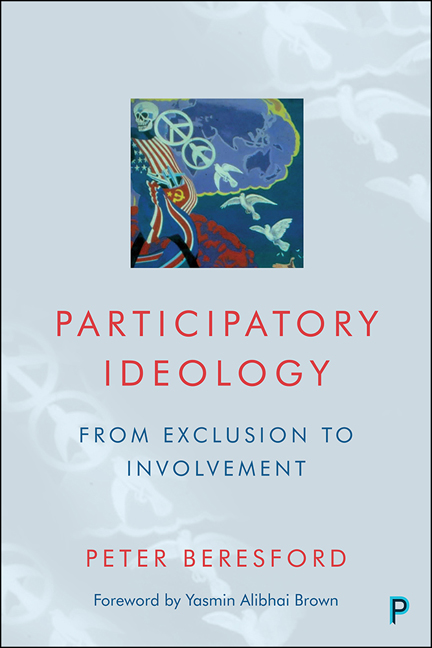8 - Key concepts for participatory ideology
Published online by Cambridge University Press: 21 December 2021
Summary
Our greatness lies not so much in being able to remake the world … as in being able to remake ourselves.
Mahatma Gandhi, South African/Indian activist, undatedUltimately, participation is a practical act. As the sociologist Carole Pateman wrote: ‘The evidence supports the arguments of Rousseau, [John Stuart] Mill and [G.D.H.] Cole that we … learn to participate by participating and that feelings of political efficacy are more likely to be developed in a participatory environment’ (Pateman, 1970, p 105). Yet it is also closely bound up with theory and theory-based concepts. Participation and political ideology are not only big ideas in their own right. Each also, as we have seen, draws us to and needs to be considered in relation to other key concepts. These include for example, concepts and issues of power, diversity and discrimination – all of which we have already encountered in this discussion. We now turn to three others – all critical if we are to make the connections between participation and ideology. These are empowerment, language and knowledge. As well as being key in conceptual analysis, they are also, of course, central to taking forward participatory ideology itself. That isn't to say that there aren't more such issues, or that other people may not have different lists. The point being made here is that these seem especially important from embarking on this project and need to be given serious attention if our commitment is to participatory ideology, particularly inclusive involvement in ideology, and achieving it. In this chapter, we will be focusing on these three ideas/issues and the part they may play in bringing about this different kind of participatory ideology.
This leads us to questions around change and making change. Change is at the heart of this book; changing our understanding of political ideology, changing our roles and relationships with it and changing our assumptions about both ourselves and the wider worlds we live in. All three issues and concepts we are discussing here are at the heart of making change. Even more to the point, here we are concerned with a different model for making change – a participatory model and key ideas which lie at the heart of it.
- Type
- Chapter
- Information
- Participatory IdeologyFrom Exclusion to Involvement, pp. 111 - 132Publisher: Bristol University PressPrint publication year: 2021

